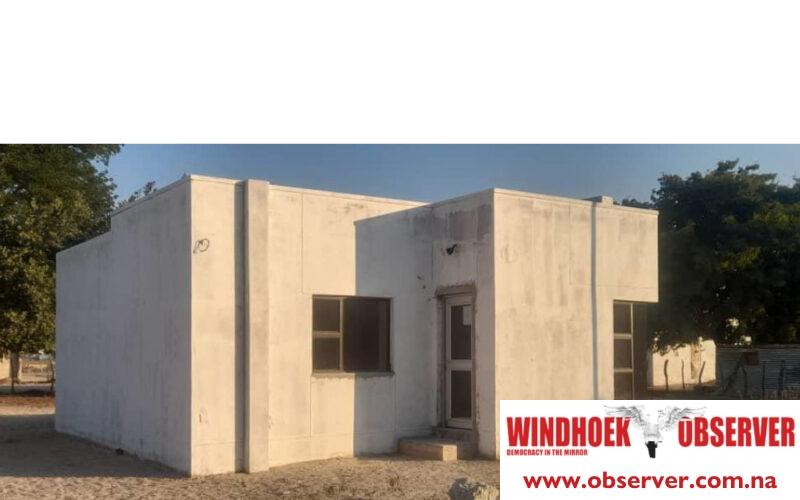Ester Mbathera and Martin Endjala
Officials of the Okongo Village Council have allocated low-cost houses to themselves.
Senior council members received the houses intended for low-income families in the village, despite their ineligibility based on salary criteria.
Documents obtained by the Windhoek Observer reveal that Maria Shikomba, a senior accountant, Maria Kaluvi, the head of administration, and Abraham Kapembe, the building inspector at the Okongo Village Council, allocated themselves houses under the Build Together National Housing Programme.
This programme specifies a maximum salary threshold of N$6 000 for eligibility, which the officials exceed by several degrees.
According to the documents, Shikomba, who was initially not listed in the programme’s database, received Erf 626, originally designated for a resident named Robert Hashoongo.
Kapembe, a member of the Build Together committee responsible for the allocation process, took Erf 569, which is 565 square metres in size.
Kaluvi, who chairs the Build Together committee, allocated herself Erf 632.
Each of these officials obtained loans worth N$80 000 through the programme, and the construction of their houses is nearly complete.
They have not responded to calls and text messages requesting comments.
The Windhoek Observer wanted to know if they were actual beneficiaries of the program.
If so, why did they act in this manner when they were in charge of identifying, allocating, and implementing the program?
The Build Together National Housing Programme commenced in 1992.
It targets both urban and rural low-income earners.
Several local authorities have taken up the initiative to provide low-income families with affordable houses.
Immanuel Haikali, the Chief Executive Officer of the Okongo Village Council, said that he was unaware of the allegations and would respond to questions on Thursday.
Initially, he mentioned that the Build Together Programme does not discriminate, asserting that beneficiaries are approved by the council, not the committee, which only makes recommendations.
“Build Together beneficiaries is approved by the council and not by the committee; the committee only recommends and then the council approves. Irrespective of whether you are a council member or employee, it does not discriminate as long as you can qualify,” said Haikali.
He further stated that the council has extended its assistance to some of its employees and council members who may be eligible to benefit.
He added that they cannot be discriminated against for being employees of the council or councillors.
“We are supposed to take care of everybody, irrespective of where they are coming from,” argued the CEO.
Daniel Nghidinua, the Executive Director of the Ministry of Urban and Rural Development, reported that his office had not received any complaints regarding the misallocation of houses or erven at Okongo.
He said no recent audit had been conducted at the Okongo Village Council.
“Should illegalities be brought to light, the ministry will initiate the audit and take appropriate action,” said Nghidinua.
Nghidinua explained that the purpose of the program committees is to identify local families in need and to coordinate the program’s implementation.
“The committees are the mediators between the beneficiaries and the regional councils or the local authorities,” he said.
To ensure the integrity of the process, Nghidinua said that the committees are to follow the set criteria consisting of a waiting list that has the names of the beneficiaries’ Erf numbers based on the approved amount.
Other requirements are the name of the township, proof of township establishment or proclamation, council resolution of the selected beneficiaries, and minutes of the Build Together Committee.
“Based on these criteria, the ministry carries out due diligence to ensure that all information is submitted and approved. Thereafter, quarterly reports are submitted for monitoring purposes,” he said.




